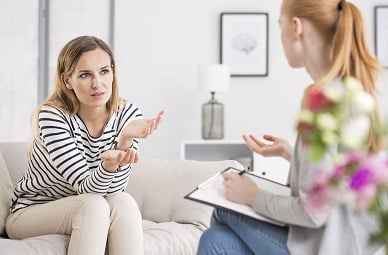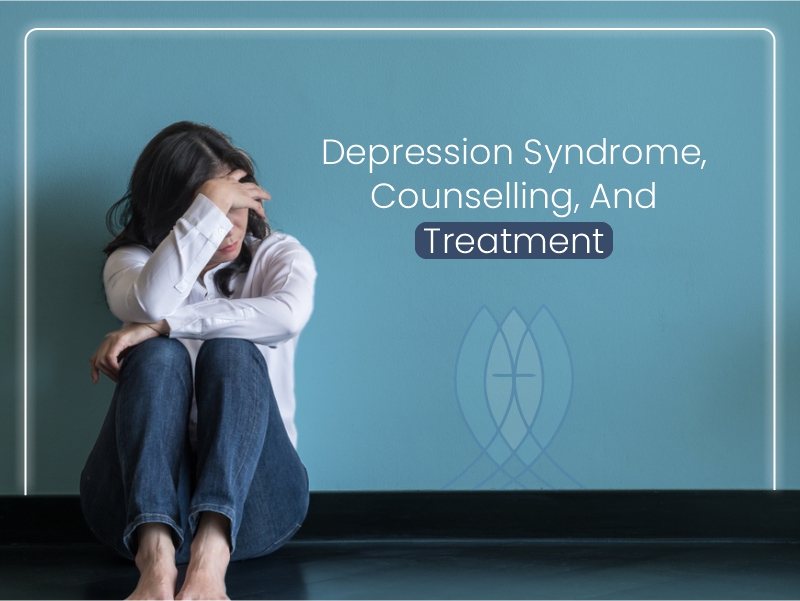Counselling for anxiety disorder available virtually and in-person near you
Counselling for anxiety disorder available virtually and in-person near you
Blog Article
Exploring Different Approaches in Therapy for Anxiety Condition for Long Lasting Change
When taking on anxiousness problems, it's important to check out a variety of counseling techniques. Each approach supplies one-of-a-kind understandings and devices to assist you manage your signs and symptoms successfully. You could discover that combining methods can generate the most effective outcomes. Comprehending the nuances of these techniques is essential to cultivating long-term modification. What if the right mix could launch a brand-new level of emotional wellness for you?
Understanding Anxiety Disorders: A Brief Review
Stress and anxiety disorders, which affect millions of people worldwide, can significantly influence daily life. You could experience overwhelming sensations of fear or stress that appear irrepressible. These feelings can lead to physical symptoms like a racing heart, sweating, and even dizziness. Common types of stress and anxiety conditions include generalised anxiousness problem, panic problem, and social anxiousness condition. Each has one-of-a-kind indicators, but they all share a propensity to interrupt your regular and relationships.Understanding the origin of your anxiety is essential. It may stem from genetics, brain chemistry, or life experiences. Recognizing your triggers can aid you manage your actions much better. It is very important to bear in mind that you're not the only one in this battle. Many individuals deal with similar obstacles, and seeking aid is a solid action toward feeling better. By finding out about anxiousness disorders, you're already on the path to understanding and handling your condition better.
Cognitive-Behavioral Therapy: Testing Adverse Idea Patterns

Recognizing Unfavorable Thought Triggers
Identifying the details triggers behind your unfavorable thoughts can be crucial in taking care of anxiousness when you run into minutes of distress. Start by focusing on situations that prompt sensations of fear or fear. Is it a congested space, an upcoming target date, or a conversation with specific people? Take down these instances in a journal. This will help you determine patterns in your thinking. Also, notification physical experiences that accompany your negative ideas, like an auto racing heart or rigidity in your breast. By determining these triggers, you obtain understanding right into what's sustaining your anxiousness. Understanding these connections is the initial step in challenging those thoughts and eventually regaining control over your emotional reactions.

Changing Ideas With Positives
Challenging negative idea patterns is a necessary action in changing your attitude and lowering anxiousness. You might frequently locate yourself caught in cycles of insecurity or disastrous reasoning. Instead of letting these ideas dictate your feelings, technique replacing them with reasonable choices or positive affirmations. When you assume, "I can't manage this," change it to, "I can handle obstacles one step at a time." This straightforward modification can substantially influence your emotional state. Consistently identifying and countering these negative thoughts helps develop a healthier inner dialogue. Keep in mind, it requires time and effort, however consistently practicing this technique can result in long-term change, equipping you to face anxiety with renewed self-confidence and strength
Structure Coping Techniques Together
Replacing negative ideas is just the beginning of taking care of stress and anxiety efficiently. To develop lasting adjustment, you need to develop coping strategies that empower you. Cognitive-Behavioral Therapy (CBT) aids you identify and challenge those purposeless idea patterns. With each other, you and your therapist can check out how these thoughts impact your feelings and behaviors.Start by developing sensible methods, like journaling or mindfulness exercises, that allow you to confront anxiety head-on. When you encounter your concerns gradually, you'll discover to respond differently.

Mindfulness and Acceptance-Based Approaches: Cultivating Present-Moment Awareness
As you navigate the intricacies of anxiousness, including mindfulness and acceptance-based strategies can substantially improve your capacity to cultivate present-moment understanding. By concentrating on the present moment, you'll find that you can observe your ideas and feelings without judgment. This technique helps you recognize your anxiety without really feeling bewildered by it.Engaging in mindfulness exercises, such as deep breathing, body scans, or assisted meditations, enables you to ground on your own in your current experience. Acceptance-based approaches urge you to embrace your emotions instead of fight against them. When you accept your feelings, they shed their power over you.Incorporating these techniques into your daily routine can transform how you respond to stress and anxiety. You'll develop strength and discover to browse stressful circumstances with greater ease. Ultimately, cultivating present-moment understanding lays the foundation for enduring modification, encouraging you to lead an extra meeting life.
Exposure Therapy: Challenging Anxieties Gradually
Exposure therapy aids you challenge your anxieties in a gradual way, making it less frustrating. You'll discover strategies to encounter anxiety-provoking circumstances detailed, while also constructing coping techniques to manage your reactions. This approach encourages you to take control and decrease anxiousness in time.
Gradual Direct Exposure Techniques
When facing anxiety, slowly facing your anxieties can be a powerful method to reclaim control. This technique, called steady exposure, involves slowly subjecting on your own to the scenarios or objects that trigger your stress and anxiety. Begin with much less daunting scenarios and gradually function your means approximately more challenging ones. For circumstances, if you're afraid of public speaking, you may begin by speaking in front of a mirror, after that advance to sharing ideas with a buddy, and ultimately resolve a little team. Each step aids desensitize you to the fear, building your confidence with time. Remember, it's necessary to pace yourself and commemorate little success as you relocate via this procedure, reinforcing your ability to take care of anxiety effectively.
Building Coping Methods
Building effective coping methods is necessary for managing stress and anxiety, especially as you challenge your anxieties gradually. One effective technique is direct exposure treatment, where you begin by facing your worries in a controlled fashion. Start with less frightening scenarios and slowly work your method up to more challenging circumstances. This progressive exposure aids desensitize you to anxiousness causes, making them less overwhelming.Incorporate leisure methods, such as deep breathing or mindfulness, to soothe your mind during exposure. Track your progress, celebrating tiny triumphes in the process to enhance your confidence. Bear in mind, it's alright to take your time; the goal isn't perfection yet steady enhancement. By developing these techniques, you'll empower on your own to navigate stress and anxiety and accept life more totally.
Psychodynamic Therapy: Uncovering Origin Causes of Anxiousness
Psychodynamic therapy discovers the unconscious mind, exposing the source of your stress and anxiety - Counseling services for anxiety. By analyzing your ideas, sensations, and previous experiences, this technique assists you uncover underlying problems and unresolved issues that might add to your present anxiety. You'll deal with a therapist to examine childhood years experiences, partnerships, and psychological patterns that form your feedbacks today.As you get understanding into these deeper layers of your psyche, you'll start to acknowledge how past events influence your existing behavior. This understanding can result in catharsis, allowing you to process feelings you may have suppressed.Through the therapeutic relationship, you can also recognize defense reaction that may have established over time, offering a clearer course to change. Eventually, psychodynamic therapy furnishes you with the devices to address your anxiousness at its core, advertising long-term improvement in your psychological well-being
Alternative and integrative Strategies: Incorporating Strategies for Greater Efficacy
Integrating different restorative strategies can improve your trip towards handling stress and anxiety better. By combining aspects from cognitive-behavioral treatment, mindfulness techniques, and all natural strategies, you can produce a customized technique that addresses your distinct demands. For instance, you may use cognitive-behavioral methods to challenge negative thought patterns while incorporating mindfulness workouts to ground on your own in the here and now moment.Additionally, discovering all natural techniques such as yoga or reflection can promote leisure and decrease anxiety signs and symptoms. This blend enables you to create higher self-awareness and resilience.Experimenting with these diverse methods can help you uncover what reverberates most with you. Keep in mind, it has to do with finding a harmony that functions, instead than staying with a solitary approach. This integrative strategy not just offers immediate relief but also cultivates long-term skills for handling anxiousness, encouraging you to reclaim control over your life.
The Function of Support Equipments: Building Resilience With Connection
While it may appear that managing stress and anxiety is a singular journey, having a solid assistance system can play an important function in your strength. Bordering on your own with empathetic pals, family members, or support system produces a safe space where you can honestly share your experiences and sensations. You remind on your own that you're not alone in this struggle.These partnerships supply support and can give sensible coping techniques that have functioned for others when you attach with others. It's also an opportunity to gain point of view; buddies can assist you see circumstances in different ways, minimizing feelings of isolation.Moreover, psychological support fosters a sense of belonging, which can considerably reduce anxiety signs. By leaning on your assistance system, you can build strength and deal with obstacles a lot more properly. Remember, getting to out for aid is an indicator of strength, and it can make all the distinction in your trip towards managing stress and anxiety.
Often Asked Inquiries
What Are the Usual Signs of Stress And Anxiety Problems?
You might experience uneasyness, fatigue, difficulty focusing, irritability, muscle stress, and sleep disruptions. Physical symptoms can include quick heartbeat, sweating, and trembling. Recognizing these signs early can aid you look for ideal support and therapy.

Exactly How Long Does Therapy Typically Last for Anxiousness Conditions?
Therapy for anxiousness disorders usually lasts anywhere from a couple of weeks to several months. It truly depends on your individual needs, progress, and the techniques your specialist utilizes to assist you handle your anxiety efficiently.
Can Drug Be Made Use Of Alongside Therapy for Stress and anxiety?
Yes, medication can most definitely be made use of along with therapy for anxiousness. Incorporating both techniques frequently boosts treatment performance, aiding you take care of symptoms while checking out underlying concerns through counseling. Always consult your doctor for individualized suggestions.
Exist Self-Help Approaches for Handling Stress And Anxiety?
Yes, there are numerous self-help strategies for handling stress and anxiety. You can practice mindfulness, involve in regular exercise, keep a well balanced diet, establish a regular, and make use of deep breathing techniques to help in reducing stress and anxiety symptoms efficiently.
How Do I Know if I Need Professional Help for Anxiousness?
You ought to consider seeking professional help for anxiousness if it interferes with every day life, creates considerable distress, or if self-help methods aren't working. Count on your impulses; connecting can bring about much better coping skills and support. Common types of anxiousness conditions include generalized stress and anxiety condition, panic condition, and social anxiousness condition. When you experience minutes of distress, identifying the particular triggers behind your unfavorable ideas can be vital in managing stress and anxiety. Changing unfavorable ideas is just the start of taking care of stress and anxiety properly. By examining your ideas, feelings, and previous experiences, this method aids you discover underlying problems and unsolved problems that may contribute to your current anxiousness. read more It's likewise a chance to obtain viewpoint; friends can help you see scenarios in different ways, reducing feelings of isolation (Counseling services for anxiety).Moreover, emotional support cultivates a sense of belonging, which can significantly minimize anxiety symptoms
Report this page